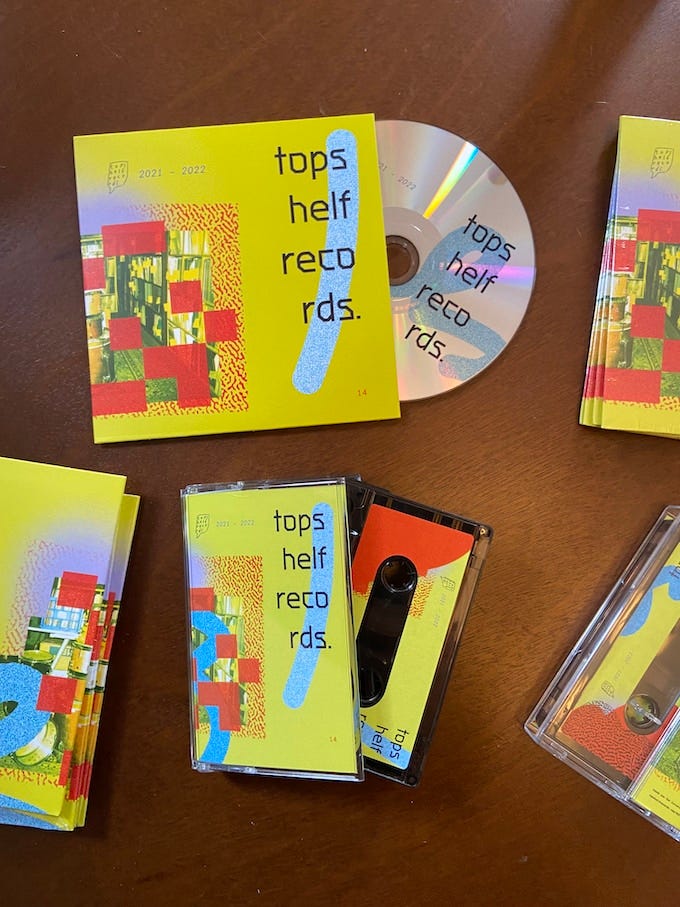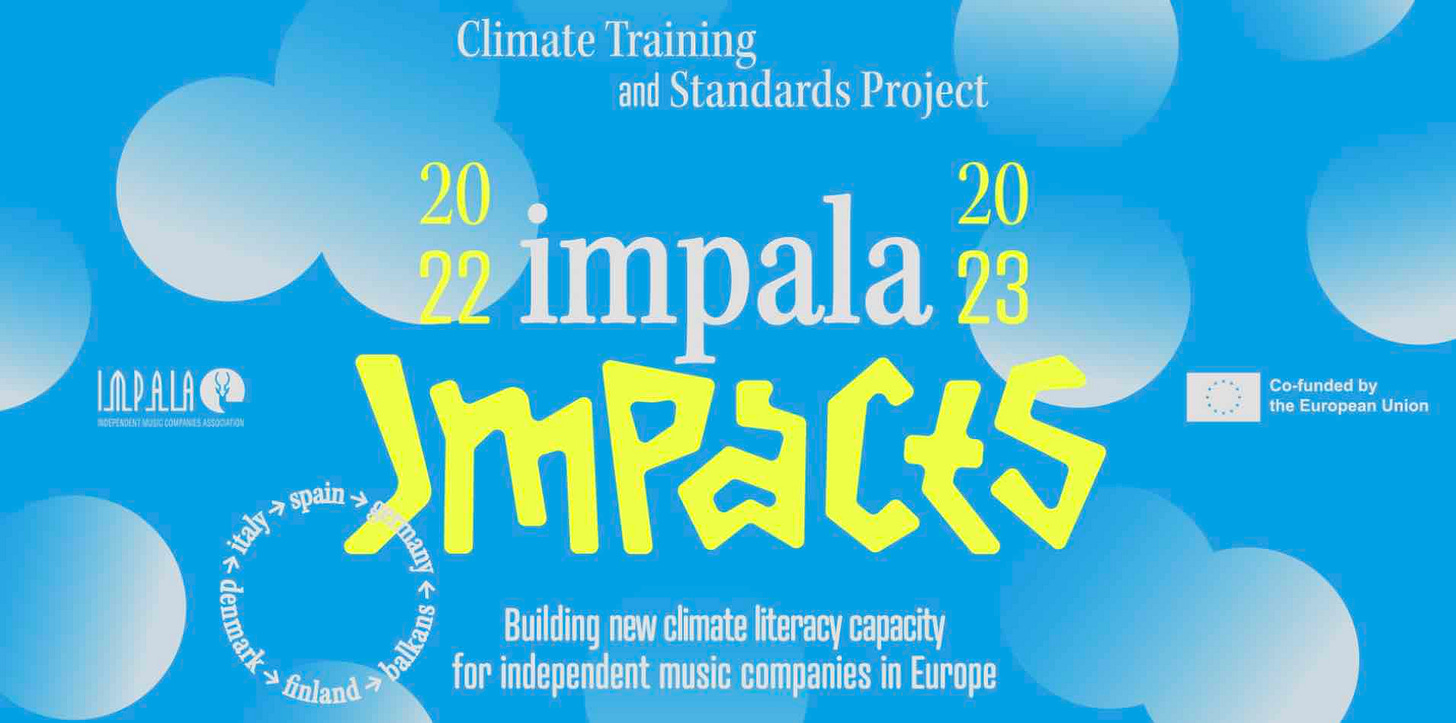✘ A not so Awesome Merch story
And: Jagwar Twin uploads himself to the Internet; IMPALA launches a climate training project; How the music industry can increase its overall revenue; Life after Lifestyle; Creative Commons and NFTs
When you invest in a company at an early stage, there’s a risk there won’t be a return. When you’re a band or a label using a merch company you expect them to deliver and you aim for transparent communication. There’s a bunch of start-ups who aim to upset, change, and improve the way merch and distribution is run in the live music industry. Awesome Merchandise was one of them. They were, because they don’t exist anymore, they went into administration, or to put it differently, they went bankrupt. The company was based out of Leeds, England and the local Yorkshire Post first reported on it on 26 August with a simple message that the investors in the company won’t see any return on their money.
Awesome Merch raised money via one of the many new ways for regular people to invest, a platform called crowdcube. This is part of a trend that sees a larger fractionalization and thus lower barrier to entry for people to make their money work for them - even if it’s hundreds instead of hundreds of thousands that you have. Awesome Merch did well and raised £650,000 from more than 1000 of these investors.
As these things go, the writing had probably been on the wall for a while that Awesome Merch wasn’t going to make it. Hence, the owner was planning ahead and before putting his company into administration he founded a new company that immediately bought the assets of Awesome Merch. This makes sense, because this UK part of the company was evidently profitable and self-sustaining. The money raised from crowdcube, then, was used to fund expansion, mainly in the USA. And this is where the trouble lies.
The UK and US-part of the operations were shut down without prior notice. But whereas the UK arm should pick up where they left off under a new name, the US arm has disappeared. What’s more, it seems that while the new company, Print.Inc, was registered in the UK on 12 August - meaning that someone seemed to know what was about to happen - they were still taking orders and processing payments.
Of course, companies can go bankrupt. Of course, investors can lose their money. But as a business owner, you have a responsibility towards your clients and that seems to have gone out the window. Now, I don’t have any knowledge about the decisions that have been made one the side of Awesome Merch or Print.Inc, but what happened has impacted a lot of independent labels and artists. One example being Top Shelf Records, who have done a lot to help raise awareness about this situation. Their Kickstarter campaign - focused on covering for losses, legal procedures, and production - gives a good insight into how the bankruptcy was thrown into their path and how it has derailed all they do. And don’t hesitate supporting them, or go on Twitter and search for one of the many, many other indie labels and artists who’s livelihood has been impacted by this and reach out to them with support.
LINKS
♾️ Jagwar Twin Uploads Himself To The Internet (Toyah Ann)
“As we all know Jagwar Twin is reinventing the internet. He’s creating free NFTs, websites, and now he’s even uploading himself as an AI on Twitter! He has used so many immersive experiences through all of his sites to bring fans deeper into his art. Everything from smiling for 3.5 minutes to secret codes that unlock unreleased songs!”
✘ I love the kind of world-building that Jagwar Twin engages in and this now AI-driven version of himself - called Saravi - is another great way to step into this world.
🌱 IMPALA to launch Impacts, new climate training project (Lucy Thraves)
“The project aims to build new climate literacy capacity for independent music companies across Europe to help them lower their carbon footprint. It will offer climate literacy training by international and local experts, in six territories across Europe (Germany, Spain, Italy, Balkans, Finland, Denmark). This will include guidance on using the carbon calculator, encouraging capacity building in the sector and supporting IMPALA’s members in green recovery actions.”
✘ Really good to see another sustainability project start up in the music industry. We need more!
💰 How The Music Industry Can Increase Its Overall Revenue (Dan Runcie)
“But if music tech founders want to help artists to capture more of their influence, they should help artists find ways to monetize how talent in other industries does. That can include product sales in real life (or in a video game or the metaverse). That could also be artists creating their own digital environments and inviting fans to them.”
✘ A great piece by Dan Runcie on how current infrastructures limit innovation in the music industry. But also, how innovators need to look at what artists actually want and need and develop that instead of something else.
🧬 Life After Lifestyle (Toby Shorin)
“The Lifestyle era was not about creating culture; it was about attaching brands onto existing cultural contexts. It was not about shaping people; it was about sorting consumer demographics into niche categories. The new order we are entering into reverses this. For some organizations, culture has become the product itself, and products have become secondary, auxiliary, to the production of culture.”
✘ This isn’t specifically about music, but about culture and society more broadly. But music does this by its nature, it creates culture through the production of sound waves that people then attach meaning to and vice versa. There’s a lot to unpack in this one.
🪜 New FAQ on NFTs and CC0 (Creative Commons)
“While we always welcome contributions to the public commons, we want to ensure everyone understands how these new tools and practices might align with our legal tools and the global open commons that CC legal tools enable. Having spoken with some NFT artists and platform team members, we know there is widespread misunderstanding about what a CC license or CC0 dedication means. When a CC license or CC0 is used to share a work, the rights to reuse that work are widely or completely shared, with limited or no rights reserved.”
✘ This is such an important move from Creative Commons as I see a lot of people in the NFT ecosystem misuse or misinterpret what a Creative Commons is and does. Required reading if you intend to use this method.
MUSIC
I love going back to this mix every now and then, mainly when I need some really high-energy boost or to get rid of some internal high energy by dancing away. The music goes back to mid 1990s rave music that slanted towards the heavier side of the spectrum.





